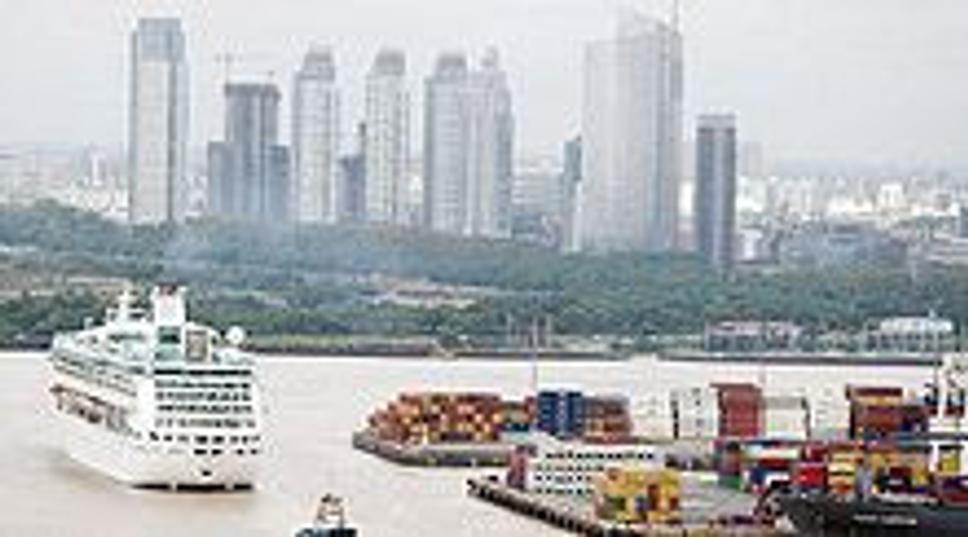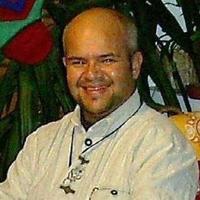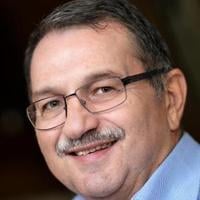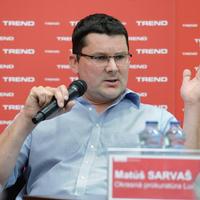
The rule of law was consolidated in large measure by Dalmacio Vélez Sársfield, whose 1860 Commercial Code and 1869 Civil Code laid the foundation for Argentina's statutory laws. General Julio Argentino Roca's military campaign in the 1870s established Argentine dominance over the southern Pampas and Patagonia, subdued the remaining indigenous peoples and left 1,300 indigenous dead. Some contemporary sources indicate that it was campaign of genocide by the Argentine government.
Argentina increased in prosperity and prominence between 1880 and 1929, while emerging as one of the 10 richest countries in the world, benefiting from an agricultural export-led economy, as well as British and French investment. Driven by immigration and decreasing mortality, the Argentine population grew fivefold and the economy by 15-fold. Conservative interests dominated Argentine politics through non-democratic means until, in 1912, President Roque Sáenz Peña enacted universal male suffrage and the secret ballot.
This allowed their traditional rivals, the centrist Radical Civic Union, to win the country's first free elections in 1916. President Hipólito Yrigoyen enacted social and economic reforms and extended assistance to family farmers and small business; having been politically imposing and beset by the Great Depression, however, Yrigoyen was overthrown in 1930. This led to another decade of Conservative rule, whose economists turned to more protectionist policies and whose electoral policy was one of "patriotic fraud". The country was neutral during World War I and most of World War II, becoming an important source of foodstuffs for the Allied Nations.
In 1946, General Juan Perón was elected president, creating a political movement referred to as "Peronism". His hugely popular wife, Evita, played a central political role until her death in 1952, mostly through the Eva Perón Foundation and the Peronist Women's Party. During Perón's tenure, wages and working conditions improved appreciably, unionization was fostered, strategic industries and services were nationalized, and urban development was prioritized over the agrarian sector.
Formerly stable prices and exchange rates were disrupted, however: the peso lost about 70% of its value from early 1948 to early 1950, and inflation reached 50% in 1951. Foreign policy became more isolationist, straining U.S.-Argentine relations. Perón intensified censorship as well as repression: 110 publications were shuttered, and numerous opposition figures were imprisoned and tortured. Over time, he rid himself of many important and capable advisers, while promoting patronage. A violent coup, which bombarded the Casa Rosada and its surroundings killing many, deposed him in 1955. He fled into exile, eventually residing in Spain.
Following an attempt to purge the Peronist influence and the banning of Peronists from political life, elections in 1958 brought Arturo Frondizi to office. Frondizi enjoyed some support from Perón's followers, and his policies encouraged investment to make the country self-sufficient in energy and industry, helping reverse a chronic trade deficit for Argentina. The military, however, frequently interfered on behalf of conservative interests and the results were mixed.[16] Frondizi was forced to resign in 1962. Arturo Illia, elected in 1963, enacted expansionist policies; but despite prosperity, his attempts to include Peronists in the political process resulted in the armed forces' retaking power in a quiet 1966 coup.
Though repressive, this new regime continued to encourage domestic development and invested record amounts into public works. The economy grew strongly, and income poverty declined to 7% by 1975, still a record low. Partly because of their repressiveness, however, political violence began to escalate and, from exile, Perón skillfully co-opted student and labor protests, which eventually resulted in the military regime's call for free elections in 1973 and his return from Spain.
Taking office that year, Perón died in July 1974, leaving his third wife Isabel, the Vice President, to succeed him in office. Mrs. Perón had been chosen as a compromise among feuding Peronist factions who could agree on no other running mate; secretly, though, she was beholden to Perón's most fascist advisers. The resulting conflict between left and right-wing extremists led to mayhem and financial chaos and, in March 1976, a coup d'état removed her from office.
The self-styled National Reorganization Process intensified measures against armed groups on the far left such as People's Revolutionary Army and the Montoneros, which from 1970 had kidnapped and murdered people almost weekly. Repression was quickly extended to the opposition in general, however, and during the "Dirty War" thousands of dissidents "disappeared". These abuses were aided and abetted by the CIA in Operation Condor, with many of the military leaders that took part in abuses trained in the U.S.-financed School of the Americas.
This new dictatorship at first brought some stability and built numerous important public works; but their frequent wage freezes and deregulation of finance led to a sharp fall in living standards and record foreign debt. Deindustrialization, the peso's collapse and crushing real interest rates, as well as unprecedented corruption, public revulsion in the face of alleged human rights abuses and, finally, the country's 1982 defeat by the British in the Falklands War discredited the military regime and led to free elections in 1983.
Raúl Alfonsín's government took steps to account for the "disappeared", established civilian control of the armed forces and consolidated democratic institutions. The members of the three military juntas were prosecuted and sentenced to life terms. The previous regime's foreign debt, however, left the Argentine economy saddled by the conditions imposed on it by both its private creditors and the IMF, and priority was given to servicing the foreign debt at the expense of public works and domestic credit. Alfonsín's failure to resolve worsening economic problems caused him to lose public confidence. Following a 1989 currency crisis that resulted in a sudden and ruinous 15-fold jump in prices, he left office five months early.
Newly elected President Carlos Menem began pursuing privatizations and, after a second bout of hyperinflation in 1990, reached out to economist Domingo Cavallo, who imposed a peso-dollar fixed exchange rate in 1991 and adopted far-reaching market-based policies, dismantling protectionist barriers and business regulations, while accelerating privatizations. These reforms contributed to significant increases in investment and growth with stable prices through most of the 1990s; but the peso's fixed value could only be maintained by flooding the market with dollars, resulting in a renewed increase in the foreign debt. Towards 1998, moreover, a series of international financial crises and overvaluation of the pegged peso caused a gradual slide into economic crisis. The sense of stability and well being which had prevailed during the 1990s eroded quickly, and by the end of his term in 1999, these accumulating problems and reports of corruption had made Menem unpopular.
President Fernando de la Rúa inherited diminished competitiveness in exports, as well as chronic fiscal deficits. The governing coalition developed rifts, and his returning Cavallo to the Economy Ministry was interpreted as a crisis move by speculators. The decision backfired and Cavallo was eventually forced to take measures to halt a wave of capital flight and to stem the imminent debt crisis (culminating in the freezing of bank accounts). A climate of popular discontent ensued, and on 20 December 2001 Argentina dove into its worst institutional and economic crisis since the 1890 Barings financial debacle. There were violent street protests, which clashed with police and resulted in several fatalities. The increasingly chaotic climate, amid riots accompanied by cries that "they should all go", finally resulted in the resignation of President de la Rúa.
Three presidents followed in quick succession over two weeks, culminating in the appointment of interim President Eduardo Duhalde by the Legislative Assembly on 2 January 2002. Argentina defaulted on its international debt, and the peso's 11 year-old tie to the U.S. dollar was rescinded, causing a major depreciation of the peso and a spike in inflation. Duhalde, a Peronist with a center-left economic position, had to cope with a financial and socio-economic crisis, with unemployment as high as 25% by late 2002 and the lowest real wages in sixty years. The crisis accentuated the people's mistrust in politicians and institutions. Following a year racked by protest, the economy began to stabilize by late 2002, and restrictions on bank withdrawals were lifted in December.
Benefiting from a devalued exchange rate the government implemented new policies based on re-industrialization, import substitution and increased exports and began seeing consistent fiscal and trade surpluses. Governor Néstor Kirchner, a social democratic Peronist, was elected president in May 2003 and during Kirchner's presidency Argentina restructured its defaulted debt with a steep discount (about 66%) on most bonds, paid off debts with the International Monetary Fund, renegotiated contracts with utilities and nationalized some previously privatized enterprises. Kirchner and his economists, notably Roberto Lavagna, also pursued a vigorous incomes policy and public works investment.
Argentina has since been enjoying economic growth, though with high inflation. Néstor Kirchner forfeited the 2007 campaign in favor of his wife Senator Cristina Fernández de Kirchner. Winning by a landslide that October, she became the first woman elected President of Argentina and in a disputed result, Fabiana Ríos, a center-left (ARI) candidate in Tierra del Fuego Province became the first woman in Argentine history to be elected governor.
President Cristina Kirchner, despite carrying large majorities in Congress, saw controversial plans for higher agricultural export taxes defeated by Vice President Julio Cobos' surprise tie-breaking vote against them on 16 July 2008, following massive agrarian protests and lockouts from March to July. The global financial crisis has since prompted Mrs. Kirchner to step up her husband's policy of state intervention in troubled sectors of the economy. A halt in growth and political missteps helped lead Kirchnerism and its allies to lose their absolute majority in Congress, following the 2009 mid-term elections.






